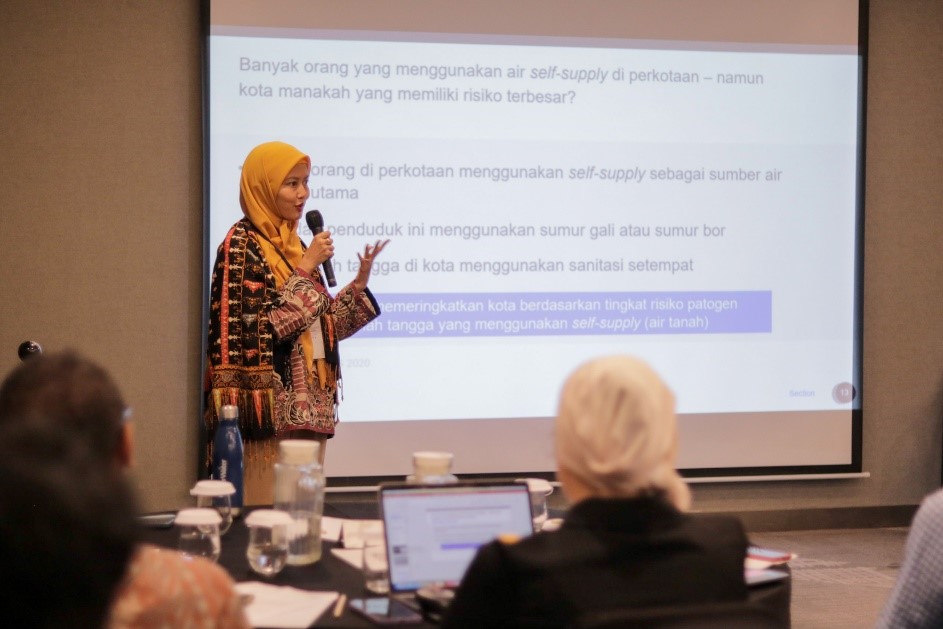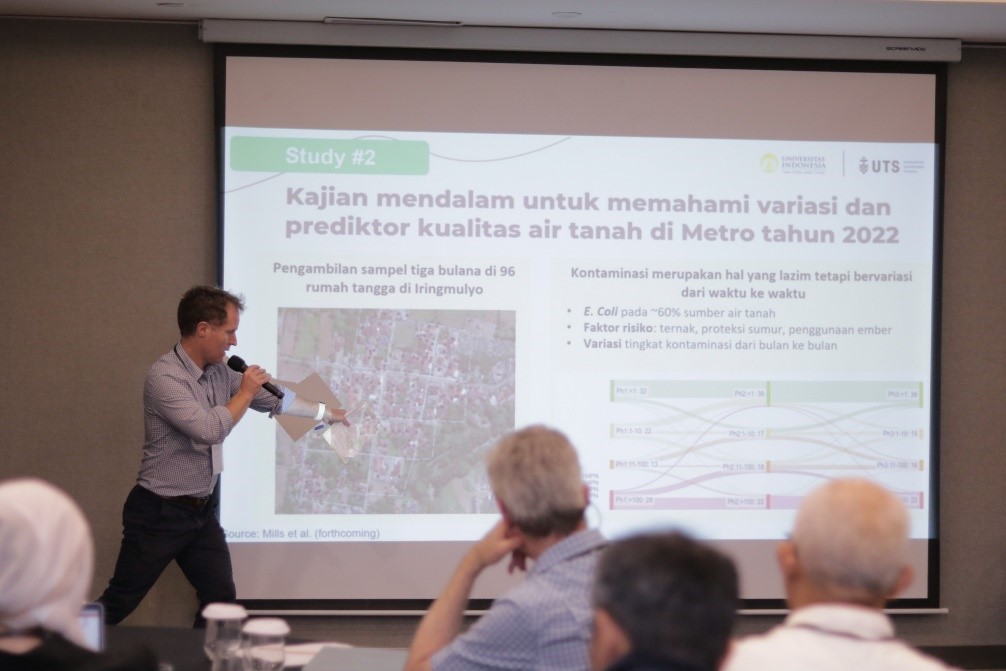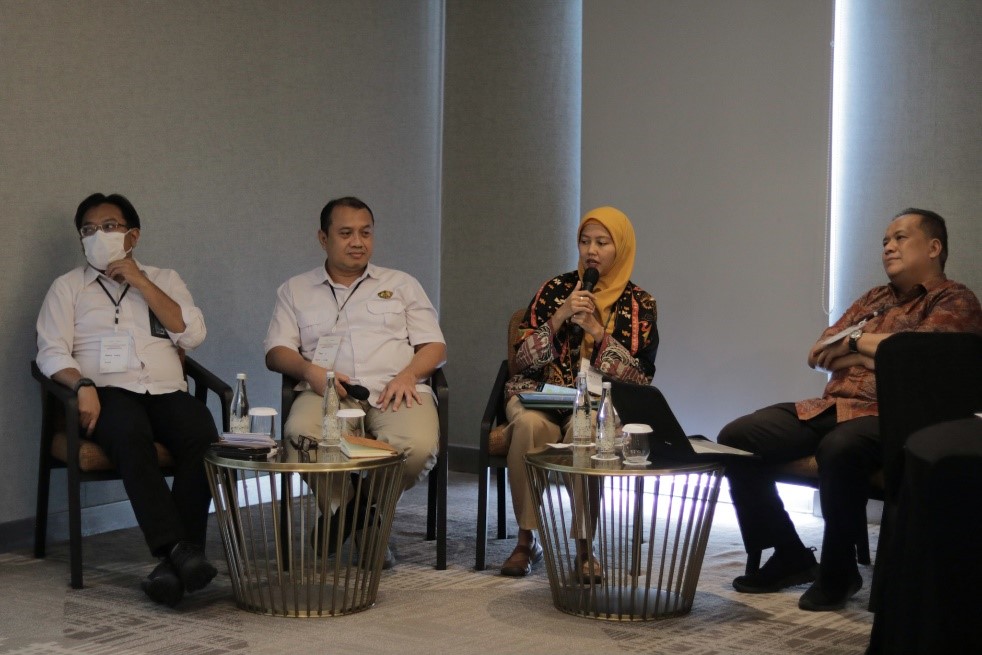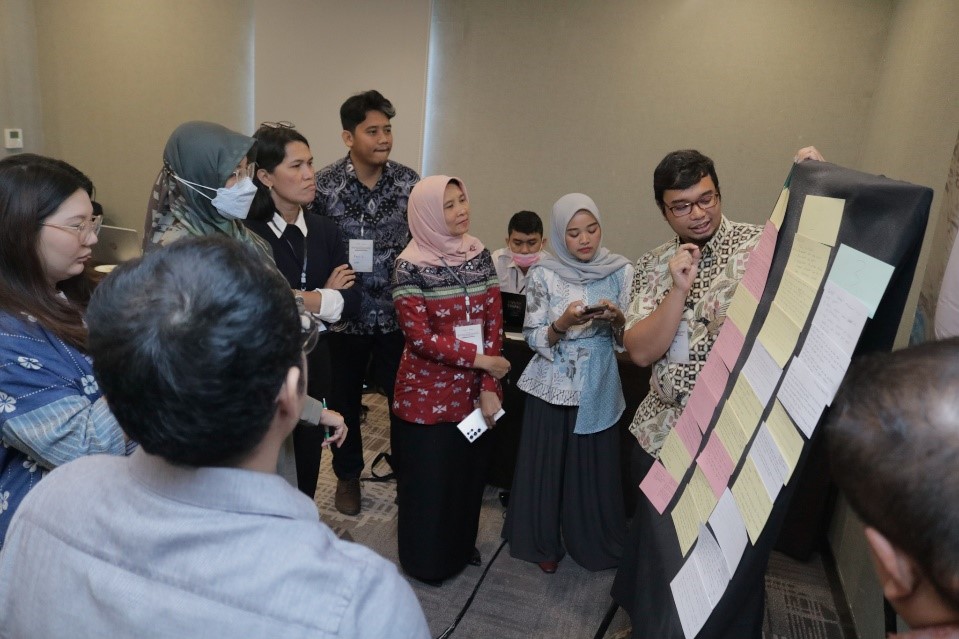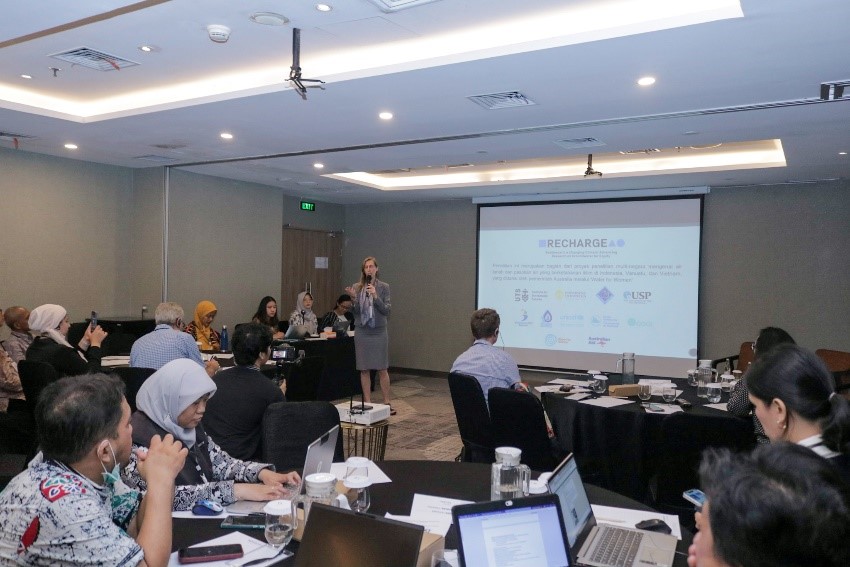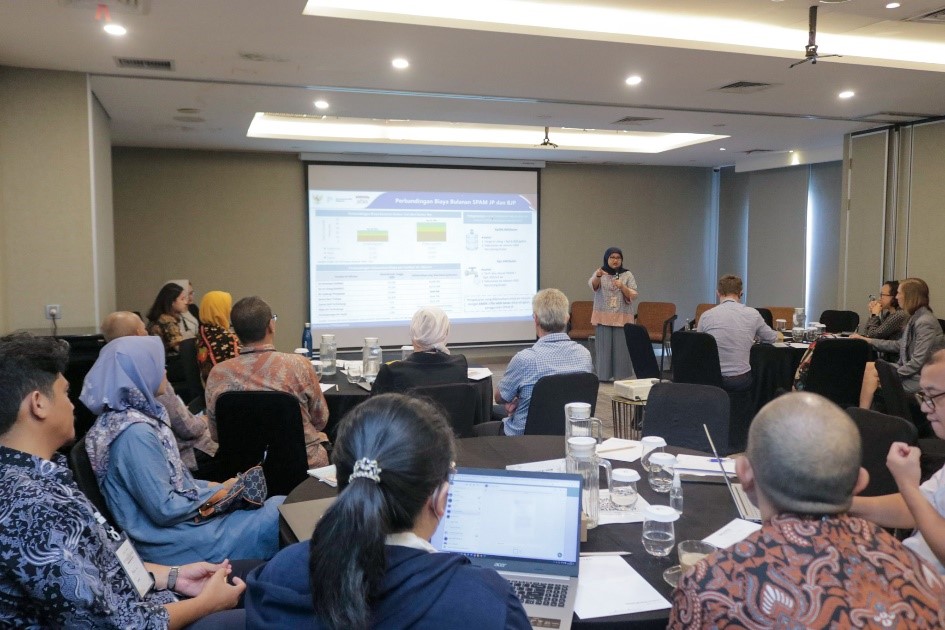Universitas Indonesia (UI), through the Faculty of Engineering (FT) in collaboration with the Institute for Sustainable Futures (ISF), University of Technology Sydney (UTS), has conducted research to assess the microbial quality of more than 500 groundwater sources in Metro City, Lampung, and Bekasi, West Java, from 2020 to 2022. From this study, it was found that 60% of the examined groundwater sources were contaminated with Escherichia coli (E. coli) bacteria. This indicates that the drinking water for the majority of the Indonesian population is still not safe for consumption.
The Chair of the Environmental Engineering Program at FTUI, Dr. Cindy Rianti Priadi, stated, “36 million people in urban areas use self-supply—organizing and financing their drinking water from groundwater—as their main source of drinking water, with 80 per cent using dug or drilled wells, and 98 households in the city using on-site sanitation systems. With this condition, it is necessary to rank cities based on the level of pathogen risk for households using groundwater. From this research, we have mapped which cities need immediate attention and follow-up actions.” The results of this research were presented by FTUI and ISF UTS in a workshop held on Wednesday (1/24) in Cikini, Jakarta.
In addition to presenting the research findings, a panel discussion was held on the topics of access to water supply, groundwater and surface water quality, and evidence-based policies. The discussion featured three panellists: Aisyah Nasution from the Directorate of Housing and Settlement Areas of Bappenas, Dr. Ahmad Taufiq from the Ministry of Public Works and Housing (PUPR), Dr. Sci Rachmat Fajar Lubis from BRIN, and Dr. Taat Setiawan from the Ministry of Energy and Mineral Resources (ESDM).
Aisyah Nasution revealed that the research project began three years ago when Bappenas RI was tasked with reviewing the groundwater situation in Indonesia. “In the field, most people still rely on traditional methods without pipes for groundwater utilization. The water obtained from this community self-supply method is often contaminated, as we have found in our research,” said Aisyah. The event was attended by the Director of Research at ISF-UTS, Prof. Juliet Willetts; 25 experts in sanitation, water, and health; as well as representatives from the World Health Organization (WHO), World Bank, Water.org, Jakarta Environmental Agency (DLH), Bekasi Environmental Agency (DLH), and representatives from the National Research and Innovation Agency (BRIN).
From the discussion, it was concluded that transitioning to piped water is necessary to improve water quality, prevent groundwater depletion, enhance long-term health, and integrate drinking water distribution. Additionally, attention should be given to the sustainability of groundwater reserves, especially when spatial planning often assumes the availability of water as a constant aspect. The FTUI and ISF UTS team will report these policy recommendations to the government to achieve a safe and managed transition to groundwater services.
FTUI Dean, Prof. Dr. Ir. Heri Hermansyah, S.T., M.Eng., IPU., said, “This activity demonstrates that FTUI has a high focus and concern for groundwater issues in cities in Indonesia. With this activity, it is hoped that the development of collaboration opportunities regarding the transition to clean water supply for urban households between academia, communities, and the government can continue so that the sustainability of clean water supply in Indonesia can become more inclusive.
***
Office of Public Communication
Faculty of Engineering Universitas Indonesia

